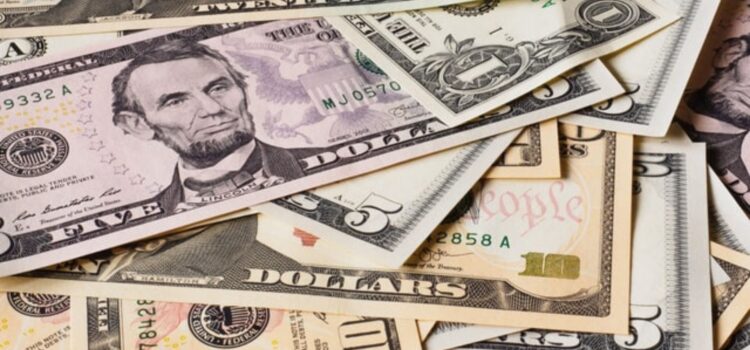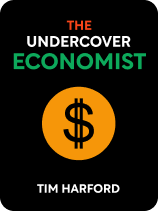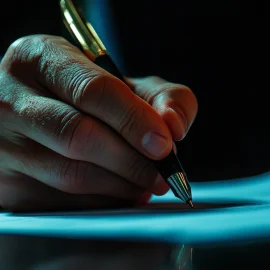

This article is an excerpt from the Shortform book guide to "The Undercover Economist" by Tim Harford. Shortform has the world's best summaries and analyses of books you should be reading.
Like this article? Sign up for a free trial here .
What’s a game theory? Who was the first person to use the game theory to explain economic behavior?
Game theory is a discipline that is adjacent to economics and mathematics. The mathematician John von Neumann created much of the theory behind modern game theory in his 1944 book Theory of Games and Economic Behavior.
Keep reading to learn more about the economic game theory, explained in simple terms.
What’s a Game?
We’ll define a “game” as an activity in which predicting another’s actions affects your own actions. Many everyday situations, like driving, are games. When you’re behind the wheel, you drive based on the rules of the road but also based on what behavior other cars on the road are exhibiting. If a car is driving erratically, or too quickly, you’ll likely switch into a more defensive driving mode. If a car in front of you is driving too slowly, you’ll attempt to pass.
Poker
Von Neumann and many of his game theory contemporaries were fascinated with poker as an application for their game theory. In poker games, you win an entire pot of money if you finish with the best hand. There are rounds of betting in which players make decisions based on how other players are behaving about whether to stay in a hand, in an attempt to win, or whether to get out of the hand and save their money. Players can calculate in real time whether it’s worth paying to stay in.
For example, in the poker game Texas Hold ‘Em, communal cards that everyone can see and use are shown by the dealer after every round of betting. Players are often looking for a specific card or kind of card to complete a hand. It doesn’t take too much math to figure out the probability of a card coming up and whether it’s worth it to pay to stay in the hand and look for your card.
Where it gets more complicated, and where game theory comes into play, is what the other players are doing. Players both figure out the probability of their best hand and predict whether their potential hands will beat their opponents’ potential hands. There are clues about what cards an opponent might have based on how they are betting, but they could be “bluffing,” or intentionally attempting to mislead other players into making a bad decision. Players also understand that the other players are analyzing their moves. This is why poker remains so popular and endlessly fascinating. It’s a game of secrets that’s governed by complex game theory and larger understandings of human behavior.
Selling Air
Governments and private companies also often use game theory to make big decisions. For example, multiple national governments have sold the rights to their air to telecom companies, with widely varying results based on how successful their game theory strategies were.
In selling the rights to air to telecom companies, the companies and the government are engaged in a complex game. Individual telecom companies’ goal is to buy the rights to use valuable airspace for as little money as possible. The government is attempting to sell radio-spectrum licenses (which govern the rights to use their air) to telecom companies that they think will provide a good service to their citizens, while also getting a good value on the air.
United States
The United States had a disastrous rollout of leasing air. They devised a system in which competing firms would submit public bids for licenses that governed various parcels of air. The system was intended to encourage open and honest competition between firms that would drive up the price on all of the licenses the government was offering.
The private firms, though, found a loophole in the system. They realized that there were enough licenses available for purchase that every firm could be satisfied with a portion, and developed a system to communicate with one another through their public bids. If a firm wanted control of the airspace over one particular zip code in the United States, they would submit a bid of the “price” of the zip code. If a firm wanted control of the airspace over 90039, for example, they would submit a bid of $900.39. This public bid signaled to all of the other companies to back off of 90039. By working together publicly, all of the companies ended up with licenses for parcels of air they were satisfied with. And they paid only a fraction of these licenses’ market value.
United Kingdom
The United Kingdom learned from the failures of the United States. They hired a team of game theory experts to run their sale of telecom licenses. After the U.S. failed with the auction system, many experts were unsure if an auction would work. One of the members of the game theory team, though, used a simple problem to explain why it would. He took two of his peers’ wallets. Then, he asked them, without communicating directly with one another, to bid on the money in the wallets combined. They couldn’t figure out a good strategy. Game theory, if applied in auctions, works in the same way. You know how much money is in your own wallet, and thus how much it’s worth to you, but have no idea how much money is in the other wallet. It’s like poker: You know how much you value something, but don’t know how much other people value it. And others’ behavior can change the way you think about the value of something in real time.
England had five telecom licenses to sell. They devised an online auction where everyone in the online room agrees to pay the highest bid for each license. Essentially, each buyer has to decide how much each license is worth. The buyers who believe a license is worth a lot of money are also the buyers who are confident in their ability to innovate and deliver a service that people like. This solves the problem of both making a lot of money and delivering a public good. The buyers without confidence in their technology will leave once the price becomes too high. As buyers leave, other companies revise what they think a license is worth, because the act of a company leaving gives them more information. This makes it impossible to bluff much because if buyers leave quickly, a company will be stuck paying a price it doesn’t want to.
This type of auction only works if there are many good buyers. The team set about finding these buyers next. There were already four big telecom companies in England, and many others interested in getting into the game. This worked out to 13 companies in total, all of which agreed to pay a 50 million pound deposit to bid for the five licenses for 3G service.
The team set aside one license, “License A,” for one of the nine new companies. All 13 could bid for the other four. Competition for License A drove competition for the other four licenses. As the price of License A climbed above the other four, those became a good deal. Each company had to submit a high bid for a license each round and had three “passes,” where they didn’t have to bid at all.
The English government estimated that they would raise 3 billion pounds from the auction. They reached that after 50 rounds, but all 13 companies were still in, and the bidding kept climbing, with no signs of slowing down. After a few months, the government had raised 10 billion, and one of the bidders dropped out. Five bidders then dropped out in quick succession—they learned from each other’s estimates what the 3G was worth. Other companies staying in longer than expected had forced the companies to reevaluate in real time. Eventually, the auction raised a total of 22.5 billion pounds for the five licenses. Ultimately, the strategy along with the scarcity of the licenses raised the price. Some telecom companies desperately wanted a 3G license, and there were only five on offer. The auction forced them to pay a lot of money for a scarce product.
The Issue With Game Theory
While game theory is successful in certain cases, one problem is it relies on rational actors. In the case of the bidding in England, the companies all acted rationally, because they had big teams and data models that led them to the conclusion that the licenses were worth a lot of money. In a friendly poker game, it’s harder to use knowledge of game theory to your advantage, because your opponents often don’t act in their own self-interest. The creators of game theory were accomplished mathematicians who could do complex calculations in their heads. Don’t assume this to be the case with everyone involved in any game you are playing.

———End of Preview———
Like what you just read? Read the rest of the world's best book summary and analysis of Tim Harford's "The Undercover Economist" at Shortform .
Here's what you'll find in our full The Undercover Economist summary :
- How to think like an economist
- How to use principles like scarcity, price targeting, the stock market, and game theory to make better decisions every day
- Why the economy is mostly about people, not complex math, graphs, or jargon






